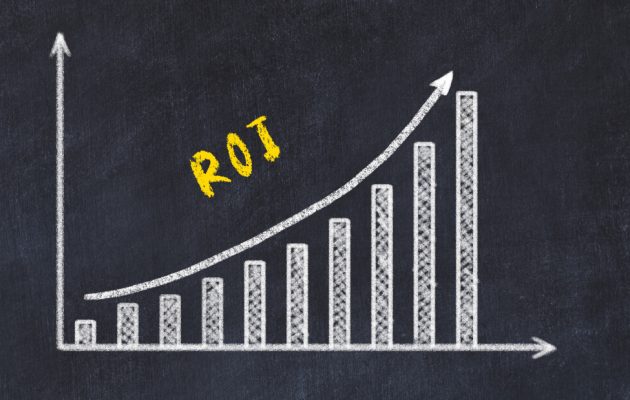PPC vs. SEO: Which Is Best for Contractors?
We’ve all heard the buzz about digital marketing for contractors, but when it comes to PPC vs. SEO, which strategy reigns supreme? It’s a question that’s sparked countless debates among marketers and business owners alike. As we explore these two powerhouse tactics, we’ll uncover their unique strengths and potential drawbacks. Whether you’re a seasoned contractor or just starting out, understanding the nuances of PPC and SEO could be the key to discovering your online success. Let’s plunge into the world of clicks and rankings to find out which approach might be your ticket to more leads and greater visibility.
Key Points
- PPC offers immediate visibility and leads, while SEO provides long-term sustainable growth for contractors.
- Contractors with immediate needs may benefit from PPC, while those focused on long-term success should invest in SEO.
- PPC allows precise targeting of specific demographics and locations, ideal for contractors serving niche markets.
- SEO builds trust and authority over time, crucial for contractors looking to establish a strong online presence.
- Combining PPC and SEO strategies can provide both short-term results and long-term benefits for contractors.
Understanding PPC for Contractors
In light of the digital marketing landscape, contractors must grasp the basics of Pay-Per-Click (PPC) advertising. PPC is a model where advertisers pay each time a user clicks on their online ad. For contractors, this means we’re investing in targeted visibility, reaching potential clients actively searching for our services.
We need to understand that PPC campaigns operate on platforms like Google Ads and Bing Ads. These platforms allow us to bid on keywords relevant to our contracting services. When potential clients search using these keywords, our ads appear prominently in search results. This immediate visibility can be vital for our business growth.
The beauty of PPC lies in its measurability and control. We can set daily budgets, target specific geographic areas, and even schedule our ads to appear during peak times. By analyzing data such as click-through rates and conversion rates, we can continuously refine our strategies. This data-driven approach ensures we’re optimizing our return on investment.
As contractors, we’re part of a competitive industry. PPC offers us a way to stand out and connect with our target audience quickly and effectively.
SEO Basics for Construction Businesses
Let’s explore two fundamental SEO strategies for construction businesses: on-page optimization techniques and local SEO strategies.
On-page optimization involves optimizing individual web pages to rank higher in search results, focusing on elements like content quality, HTML tags, and site structure.
For local SEO, we’ll concentrate on tactics that help construction businesses appear in location-based searches, including optimizing Google My Business listings and acquiring local citations.
On-Page Optimization Techniques
On-page optimization serves as the cornerstone for any successful SEO strategy in the construction industry. We’ll focus on key techniques that can greatly enhance our website’s visibility and attract more potential clients.
First, let’s optimize our page titles and meta descriptions. These elements should include relevant keywords and accurately describe our services. For instance, “Expert Home Renovation Contractors in [City]” is more effective than a generic “Construction Services.”
Next, we’ll structure our content using header tags (H1, H2, H3) to improve readability and help search engines understand our page hierarchy. We’ll incorporate targeted keywords naturally throughout our content, maintaining a density of 1-2%.
Images play a vital role in showcasing our work. We’ll optimize them by using descriptive file names and alt text that include relevant keywords. This not only improves accessibility but also helps search engines understand our visual content.
Lastly, we’ll focus on enhancing our site’s loading speed by compressing images, minifying CSS and JavaScript, and leveraging browser caching. A faster site not only ranks better but also provides superior user experience, reducing bounce rates and increasing conversions.
Local SEO Strategies
Local SEO strategies kick off our journey to dominate the construction industry’s search results in specific geographic areas. We’ll focus on optimizing our online presence to attract local customers and outrank competitors in our target markets.
Let’s start by claiming and optimizing our Google My Business (GMB) listing. We’ll make sure all information is accurate, including our business name, address, phone number, and website URL. We’ll also add high-quality photos, respond to reviews, and regularly post updates to keep our listing fresh and engaging.
Next, we’ll incorporate location-specific keywords into our website’s content, meta tags, and headers. We’ll create separate pages for each service area, optimizing them with relevant local terms.
We’ll also build local citations by listing our business on reputable directories and industry-specific platforms.
To boost our local authority, we’ll seek backlinks from local organizations, chambers of commerce, and industry associations. We’ll also encourage satisfied customers to leave reviews on our GMB listing and other platforms, as positive reviews have a significant impact on local search rankings.
Cost Comparison: PPC Vs SEO
When comparing PPC and SEO costs for contractors, we must consider both upfront and long-term expenses. PPC typically requires higher initial investment but can yield immediate results, while SEO often involves lower upfront costs but takes longer to show significant returns.
To accurately assess ROI, we’ll analyze the performance of both strategies over time, factoring in factors such as click-through rates, conversion rates, and customer lifetime value.
Upfront vs. Long-term Expenses
Several key differences emerge when comparing the upfront and long-term expenses of PPC and SEO for contractors.
PPC requires a significant initial investment to set up campaigns, create ad copy, and conduct keyword research. However, it offers immediate results, making it attractive for contractors seeking quick leads. The ongoing costs of PPC can be substantial, as we’re continually bidding on keywords and paying for each click.
In contrast, SEO has lower upfront costs but demands a longer-term commitment. We’ll need to invest time and resources into optimizing our website, creating quality content, and building backlinks. While the initial results may be slower, SEO’s long-term benefits can be more cost-effective. As our organic rankings improve, we’ll generate more leads without paying for each click.
Let’s consider the compounding effect of SEO. Over time, our efforts accumulate, potentially leading to sustained organic traffic growth. This can result in a lower cost per acquisition compared to PPC’s ongoing expenses. By balancing both strategies, we can leverage PPC’s immediate impact while building a strong SEO foundation for long-term success.
ROI Comparison Over Time
Throughout the contractor’s journey, comparing the ROI of PPC and SEO reveals distinct patterns over time. PPC typically produces faster initial results, with a more immediate ROI. We often see contractors achieve positive returns within days or weeks of launching campaigns. However, PPC’s ROI tends to plateau or even decrease over time due to rising competition and costs.
SEO, on the other hand, starts with a negative ROI as we invest in content creation, technical optimization, and link building. It may take several months before we see a positive return. Yet, as organic rankings improve and traffic increases, SEO’s ROI grows exponentially. Over the long term, SEO often outperforms PPC regarding ROI.
Let’s consider a hypothetical scenario: After one year, a $10,000 investment in PPC might yield a 150% ROI, while the same investment in SEO could result in a 300% ROI. After three years, PPC’s ROI might remain steady at 150%, while SEO’s could climb to 600% or higher. This compound effect makes SEO particularly attractive for contractors looking to build sustainable, long-term growth.
Time Investment and Results
Comparing the time investment and results of PPC and SEO reveals significant differences for contractors. PPC campaigns can be set up quickly, often within a few days, and start generating leads almost immediately. We typically see results within the first week of launching a PPC campaign. However, these results require ongoing management and budget allocation to maintain.
SEO, on the other hand, is a long-term strategy that demands more patience. It usually takes 3-6 months to see significant organic traffic improvements, and up to a year for best results. The initial time investment for SEO is substantial, involving keyword research, content creation, and technical optimizations. However, once established, SEO can provide a steady stream of leads with minimal ongoing maintenance.
For contractors, the choice between PPC and SEO often comes down to immediate needs versus long-term goals. If we need quick results to fill our project pipeline, PPC is the way to go. But if we’re looking to build a sustainable online presence and reduce long-term marketing costs, SEO is the better investment.
Many successful contractors implement a hybrid approach, using PPC for short-term gains while building their SEO foundation for lasting success.
Targeting Capabilities and Audience Reach
The targeting capabilities and audience reach of PPC and SEO offer distinct advantages for contractors. With PPC, we can precisely target our ads to specific demographics, locations, and even times of day. This detailed control allows us to reach potential customers who are actively searching for our services, maximizing our ROI. We can also adjust our targeting in real-time, responding to market changes or seasonal demands.
SEO, on the other hand, casts a broader net. By optimizing our website for relevant keywords, we can attract organic traffic from a wider audience. This approach helps us build long-term visibility and credibility in our industry.
While SEO may not offer the immediate, pinpoint targeting of PPC, it allows us to capture potential clients at various stages of the buying journey.
To maximize our reach, we should consider combining both strategies. PPC can drive immediate results and provide valuable data, while SEO builds our online authority over time. By leveraging the strengths of both approaches, we can create a thorough digital marketing strategy that ensures we’re visible to our target audience across multiple touchpoints.
Long-Term Benefits and Sustainability
Evaluating the long-term benefits and sustainability of PPC and SEO reveals distinct advantages for contractors. While PPC offers immediate visibility, its benefits are often short-lived. Once we stop paying for ads, our visibility diminishes.
SEO, on the other hand, provides enduring results that compound over time. With SEO, we’re building a sustainable online presence. As we optimize our website and create valuable content, we’re investing in our digital asset. This investment continues to pay dividends long after the initial work is done. Our organic rankings improve, leading to increased traffic and potential leads without ongoing ad spend.
PPC’s sustainability hinges on our budget, making it less predictable for long-term planning. SEO, while requiring patience, offers a more stable and cost-effective approach. We’re not just renting space; we’re owning our digital real estate.
For contractors seeking to establish themselves as industry leaders, SEO’s long-term benefits are unparalleled. We’re building trust, authority, and a loyal customer base that recognizes our expertise. This sustainable growth strategy positions us for success in an increasingly competitive digital landscape.
Measuring Success and ROI
When it comes to measuring success and ROI, PPC and SEO offer distinct metrics and evaluation methods. For PPC, we’re focused on immediate, tangible results. We can track click-through rates, conversion rates, and cost per acquisition in real-time. This allows us to quickly adjust our strategies and optimize our campaigns for maximum efficiency.
SEO, on the other hand, requires a more patient approach. We’re measuring long-term growth in organic traffic, keyword rankings, and domain authority. While these metrics take longer to show significant changes, they provide valuable insights into our overall online presence and brand authority.
To effectively measure ROI, we need to consider the lifetime value of a customer acquired through each channel. PPC might have a higher upfront cost, but if it brings in high-value clients, the ROI can be substantial. SEO’s ROI often improves over time as our organic visibility increases.
As contractors, we should implement robust tracking systems to monitor both PPC and SEO performance. By utilizing tools like Google Analytics and Search Console, we can gain a thorough understanding of our digital marketing efforts and make data-driven decisions to improve our ROI.
Combining PPC and SEO Strategies
While PPC and SEO are often viewed as separate strategies, combining them can create a powerful synergy for contractors. We’ve found that integrating these approaches can greatly enhance our online presence and lead generation efforts. By leveraging PPC’s immediate visibility and SEO’s long-term organic growth, we’re able to maximize our digital marketing impact.
Let’s consider the data-driven benefits of this combined approach. PPC campaigns provide valuable keyword performance insights, which we can use to refine our SEO strategy. Conversely, high-ranking organic content can inform our PPC ad copy, improving click-through rates. We’ve observed that running PPC ads alongside strong organic listings can increase overall click rates by up to 25%.
Furthermore, we can use PPC to test new markets or services before investing in long-term SEO efforts. This allows us to quickly gauge demand and refine our offerings. By allocating budget to both strategies, we’re able to maintain a consistent online presence while building lasting organic value. Remember, our goal is to create a thorough digital strategy that leverages the strengths of both PPC and SEO to drive sustainable growth for our contracting business.
Frequently Asked Questions
How Do Mobile Searches Affect PPC and SEO Strategies for Contractors?
We’ve seen mobile searches greatly impact our PPC and SEO strategies. We’re optimizing for local intent, using mobile-friendly designs, and focusing on voice search. Let’s adapt our content and ads to capture these on-the-go searchers effectively.
What Role Does Local SEO Play in a Contractor’s Digital Marketing Strategy?
We’ll emphasize that local SEO is vital for contractors. It’s our key to dominating local search results, attracting nearby customers, and building community trust. We’ll optimize for “near me” searches and focus on location-based keywords.
Can PPC or SEO Help Contractors Gain More Positive Online Reviews?
We can leverage both PPC and SEO to boost positive reviews. By targeting satisfied customers and optimizing our online presence, we’ll increase visibility and encourage feedback. Let’s implement a strategy that prompts happy clients to share their experiences.
How Do Seasonal Trends Impact PPC and SEO Effectiveness for Construction Businesses?
We’ve observed that seasonal trends greatly impact both PPC and SEO for construction businesses. We’ll see higher search volumes during peak seasons, affecting keyword competition and costs. Let’s adjust our strategies accordingly to maximize ROI year-round.
What Are the Best Tools for Contractors to Manage PPC and SEO Campaigns?
We recommend tools like Google Ads, SEMrush, and Ahrefs for managing PPC and SEO campaigns. They’ll help us track keywords, analyze competitors, and optimize our strategies. Let’s leverage these platforms to boost our online visibility and attract more clients.
Takeaway
We’ve analyzed the strengths of PPC and SEO for contractors. While PPC offers immediate visibility, SEO provides long-term sustainability. Our data-driven approach suggests combining both strategies for the best possible results. We recommend allocating 60% of the budget to SEO for compounding growth and 40% to PPC for quick wins. By integrating these tactics, we’ll maximize ROI, enhance online presence, and capture both short-term leads and long-term market share in the competitive construction industry.



